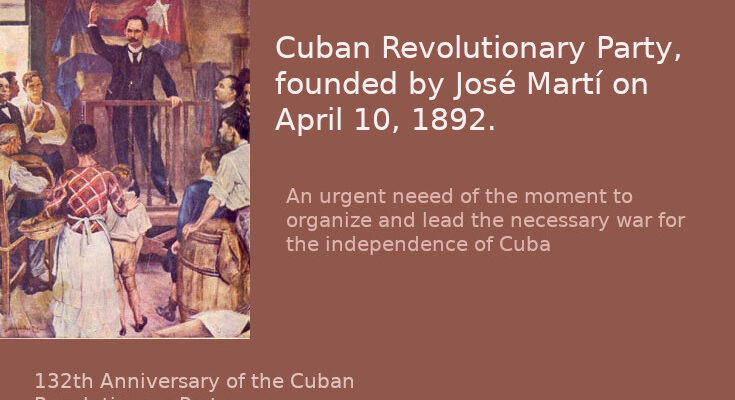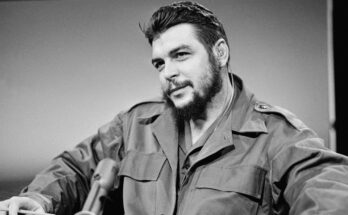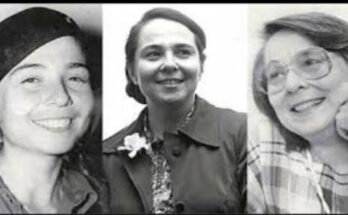José Martí had his school, to a large extent, for his political formation in the experience of the Ten Years’ War and the Chiquita War, with the most sublime of results: the founding of the Cuban Revolutionary Party, PRC, on April 10, 1892.
The adversities, disagreements, blunders and differences of criteria that led to the failure of the Ten Years’ War and the Little War revealed the need to create an organization capable of conceiving an organizational and strategic plan for the war; and to achieve the unity of all the forces around the leadership of the Revolution. In this sense, the War of 1968 contributed the clubs as a form of revolutionary organization, as a prelude to the PRC.
Faced with the existing annexationist tendency in part of the Cuban landed oligarchy and in the expansionist ambition of the United States, Martí also conceived the idea of the revolutionary political party that would organize a quick, just and democratic war, culminating in the founding of a republic that would prevent the expansion of the United States over Cuba and the other Antilles and the possibility that “they would fall with that force more over our lands of America.”
Marti’s conception of the revolutionary political party has its theoretical basis in the most advanced bourgeois democratic-revolutionary thought, synthesizing in itself ideas ranging from the French encyclopedists, to the classical German and English philosophy.
In the order of practical experiences, it is fundamentally nourished by the ideals of the Cuban national liberation movement (Ten Years War, Chiquita War) and by the experiences of the wars of independence in our America, the United States and other parts of the world.
According to Juan Marinello, the Partido Revolucionario Cubano (Cuban Revolutionary Party) is the culminating work of the revolutionary thought and activity of our National Hero, based on his contribution from the practical theoretical point of view to the struggle of the Cuban and Latin American national liberation movement.
It is precisely from the experience of this Cuban national liberation movement where Martí finds the fundamental elements on which he bases his theory of the revolutionary political party to organize and assist the armed struggle with the objective of achieving national independence.
The Chiquita War (1879 – 1880) represented a higher level of organization of the national liberation movement, since it is the first revolutionary attempt aimed at achieving the independence of Cuba by armed means that has an organizing center, the Cuban Revolutionary Committee in New York, headed by General Calixto García Iñiguez, who tried to organize the war before starting it. He had a program and a plan, and worked for the achievement of the unity of the revolutionaries both in the emigration and on the Island.
So that the experiences accumulated during the events of the wars that preceded the one of ’95, were vital in the creation of the Cuban Revolutionary Party by José Martí, to escalate in the political and organizational thought with which he guided his actions until arriving at the conduction of the necessary war in 1895.




